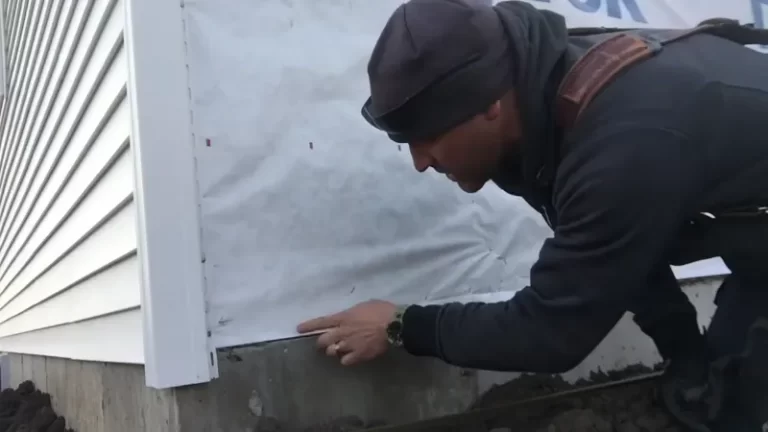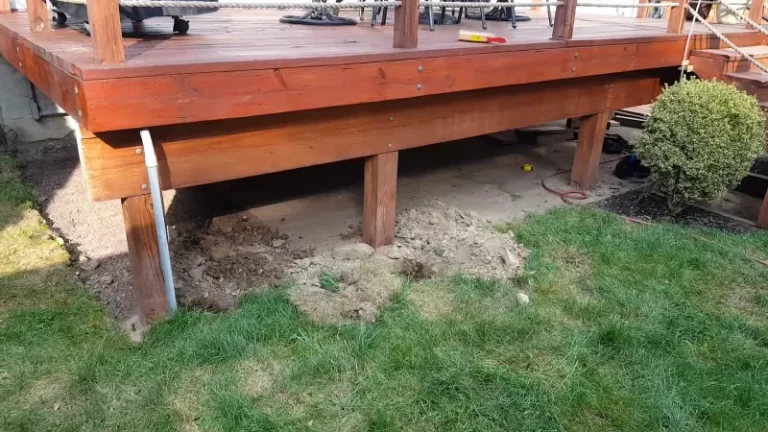Contractor Won’t Give an Estimate? Uncover the Hidden Reasons
You’ve done the research, found a seemingly qualified contractor, and walked them through your project. You’re ready to see the numbers and make a decision, but then you’re met with silence, vague promises, or an outright refusal to provide a written estimate. This frustrating situation is more common than many homeowners realize and often serves as a critical—and potentially project-saving—red flag.
Understanding why a contractor withholds an estimate is the first step to protecting your investment and avoiding a renovation nightmare. The reasons range from benign and logistical to deeply concerning, and knowing the difference is key to your next move. A written estimate isn’t just a courtesy; it’s a foundational document for a successful project.
You'll Learn About
Why a Written Estimate is Non-Negotiable
Before exploring the reasons for a contractor’s refusal, it’s crucial to understand why a detailed, written estimate is the bedrock of any home improvement project. A verbal quote is fleeting and unenforceable. A professional estimate, however, provides a clear roadmap and protects both you and the contractor.
A proper estimate should clearly outline the scope of work, material costs, labor charges, a projected timeline, and payment terms. Without this document, you are exposed to significant risks, including unexpected price hikes, disputes over what was agreed upon, and a lack of legal recourse if the project goes sideways. Never proceed with a project of any significant size without a signed, written agreement based on a detailed estimate.
Legitimate (But Still Inconvenient) Reasons for a Delayed Estimate
Not every delay or refusal to provide an instant quote is a sign of a bad actor. In today’s market, good contractors are often overwhelmed with work. Understanding the legitimate operational reasons can help you gauge whether a contractor is worth waiting for or if you’re just being given the runaround.
Patience can be beneficial if the contractor is highly reputable, but persistent unresponsiveness is a problem. Even the busiest professionals should have a system in place for managing bids and communicating with potential clients. If they can’t manage the estimating process, it raises questions about how they’ll manage your actual project.

The Contractor is Overwhelmed with Work
One of the most common reasons for a delayed estimate is that the contractor is simply swamped. A building boom or a shortage of skilled labor can leave reputable contractors with more requests than they can handle. They may prioritize current, high-value jobs over bidding for new ones.
While this reflects a strong demand for their services, it’s also a test of their professionalism. A professional contractor will communicate this, perhaps giving you a timeframe for when they can provide an estimate or honestly stating they can’t take on new work. A complete lack of communication, however, is a warning sign of poor business practices that could affect your project later on.
The Project is Too Small or Not a Good Fit
Contractors, especially larger firms, have significant overhead costs, including insurance, office space, and employee salaries. Small jobs, like replacing a single window or repairing a small patch of drywall, may not be profitable enough for them to take on. The administrative time required to create a formal estimate can outweigh the potential earnings from the job itself.
A good contractor will usually be upfront about this, stating they have a project minimum or that the job falls outside their specialty. They might even refer you to a trusted handyman or smaller outfit better suited for the task. Refusing to provide an estimate without explanation in this scenario is unprofessional, but it often just means your project isn’t a match for their business model.
Waiting on Subcontractor or Supplier Pricing
Complex projects often require input from specialized subcontractors, such as plumbers, electricians, or custom cabinet makers. A general contractor cannot provide an accurate, comprehensive estimate until they receive pricing from these essential partners.
Similarly, volatile material prices can cause delays. A contractor may need to get up-to-the-minute quotes from their suppliers for items like lumber, roofing materials, or windows before committing to a price. In this case, the delay is a sign of diligence, as they are working to provide you with an accurate and reliable number rather than a vague guess.
Major Red Flags: When Refusal Spells Trouble
While some reasons for withholding an estimate are logistical, others are serious red flags that should prompt you to walk away immediately. These tactics are often used by inexperienced or dishonest individuals looking to exploit unsuspecting homeowners. Recognizing these warning signs can save you from falling victim to one of many potential contractor horror stories.
Trust your instincts. If a contractor’s behavior seems unprofessional or evasive during the bidding process, it will almost certainly get worse once they have your deposit. A refusal to provide a written estimate is one of the clearest signs that you should not hire them.
They Intend to Overcharge or “Price by Feel”
A contractor who refuses to put a price in writing may be planning to charge whatever they think they can get away with. They might give a low verbal quote to secure the job, only for costs to mysteriously balloon once work begins. Without a written estimate, you have no baseline to contest these new charges.
This tactic relies on getting a homeowner committed to the project and then making it difficult to switch contractors. This is why it is critical to get everything in writing before any work starts or any money changes hands. This includes understanding what to do when a contractor demands more money mid-project.
Lack of Experience or Knowledge
Some individuals may not know how to properly estimate a job. Creating a detailed bid requires understanding material quantities, labor hours, permit costs, and potential complications. An inexperienced person may avoid providing a written estimate because they are incapable of producing an accurate one.
Hiring someone without this fundamental skill is incredibly risky. Their inability to plan and price a project accurately will lead to chaos, delays, and unexpected costs. A professional knows their numbers; an amateur avoids them.
They Don’t Want to Be Held Accountable
A verbal agreement is not worth the paper it’s written on. A contractor who avoids a written estimate is intentionally creating ambiguity. This allows them to cut corners on materials, use cheaper alternatives than what was discussed, and dispute the scope of work later on.
The estimate forms the basis of the final contract. By refusing to provide one, the contractor is signaling that they do not want to be legally bound to any specific price, timeline, or quality standard. This is a massive red flag that indicates a lack of integrity and professionalism.
| Reason for No Estimate | Potential Risk Level | Recommended Homeowner Action |
|---|---|---|
| Contractor is too busy | Low to Medium | Follow up once politely. If still no response, move on. |
| Job is too small | Low | Ask for a referral to a handyman or smaller firm. |
| Waiting on sub/supplier prices | Low | Ask for a timeline on when to expect the full estimate. |
| High-pressure sales tactics | High | End the conversation and do not engage further. |
| Refuses to put anything in writing | Very High | Immediately disqualify and find another contractor. |
| Cannot explain pricing | Very High | Consider this a sign of inexperience and move on. |
Your Action Plan: What to Do When You Can’t Get an Estimate
Feeling stuck when a contractor won’t give you an estimate is frustrating, but you have more power than you think. The key is to be systematic, professional, and firm in your expectations. Your home is one of your biggest assets, and you have the right to demand clarity and professionalism from anyone you hire to work on it.
The initial phase of getting bids is a direct reflection of how the contractor will behave throughout the project. The way they handle this simple, preliminary step tells you everything you need to know about their communication, organization, and reliability. It’s often the root cause of the common complaint, “Why do contractors not show up?“
1. Communicate Clearly and Professionally
Start by ensuring you have provided the contractor with everything they need. A clear, detailed project plan helps a contractor create an accurate quote. If you’ve been vague about your desires, they may be hesitant to put a number on the project.
If a reasonable amount of time has passed, send a polite follow-up email or text. Reiterate your interest in their company and ask if they have an expected date for when the estimate will be ready. This professional nudge can sometimes be enough to get the process moving.
2. Set a Firm Deadline
If a polite follow-up doesn’t yield results, it’s time to set a deadline. Contact the contractor and state that you are in the process of making a decision and need to receive all bids by a specific date, for example, by the end of the week.
This communicates that you are a serious client operating on a schedule. It respectfully pressures the contractor to either produce the estimate or inform you that they are not interested in the job. If they miss your deadline without explanation, you have your answer: they are not the right professional for you.
3. Know When to Walk Away
Do not chase a contractor who doesn’t want your business. If a contractor is unresponsive, evasive, or outright refuses to provide a written quote, your best move is to walk away. Continuing to pursue them is a waste of your time and energy.
Consider the lack of an estimate a blessing in disguise. It has revealed the contractor’s poor business practices before you have invested any money or emotion into the project. There are plenty of other professional, reliable contractors who will be eager for your business and will provide the documentation you need.
4. Find a Better Contractor
The best way to avoid this problem is to thoroughly vet contractors from the start. Seek recommendations from trusted friends, family, or local community groups. Check online reviews, but be discerning and look for detailed accounts of customer experiences.
Always interview at least three different contractors for any significant project. This not only allows you to compare prices but also gives you a feel for their communication style and professionalism. A good contractor will welcome your questions and be transparent about their process from the very beginning.
Final Thoughts: A Written Estimate Is Your First Line of Defense
A contractor’s refusal to provide a written estimate is more than just an inconvenience; it’s a critical warning sign. While there can be legitimate reasons for a delay, a persistent refusal or evasiveness points to deeper problems that could jeopardize your project. Never hire a contractor who will not provide a detailed, written estimate.
By insisting on this fundamental document, you establish clear expectations, protect yourself from financial risks, and set the stage for a successful renovation. Your diligence in the hiring phase is the single most important factor in ensuring your project is completed on time, on budget, and to your satisfaction.


